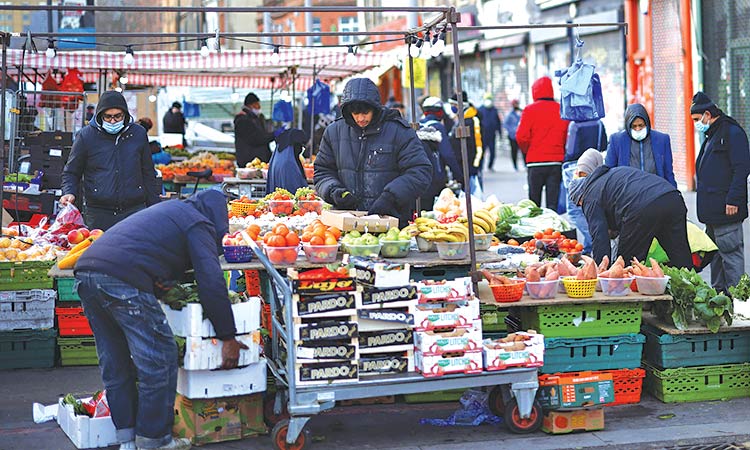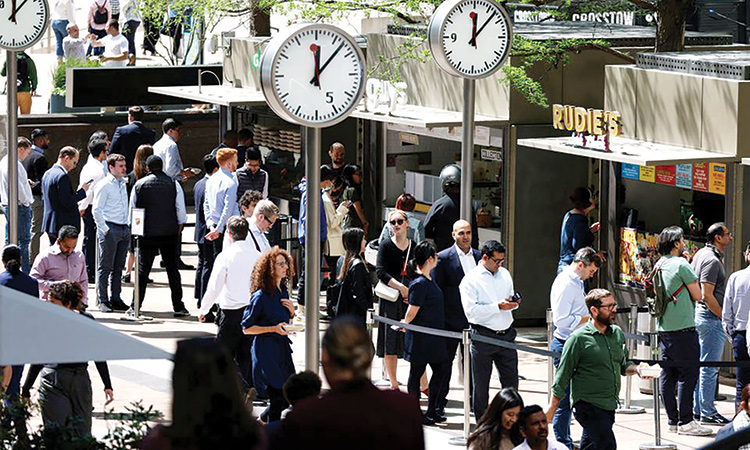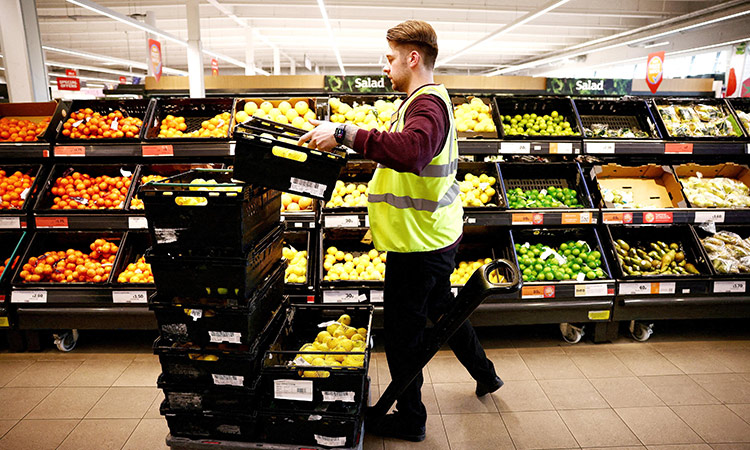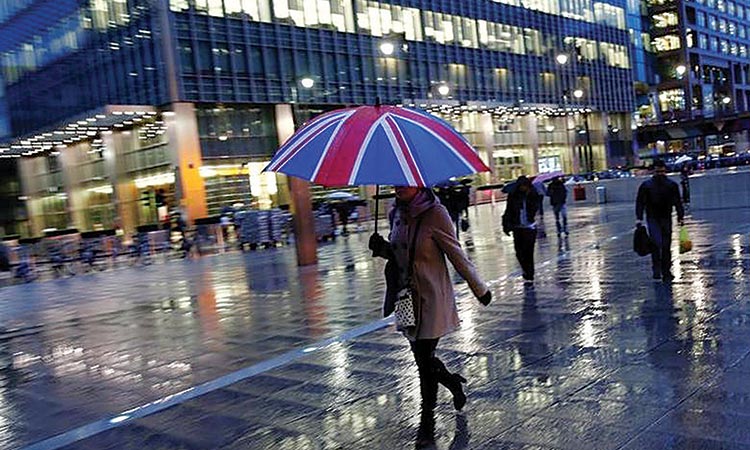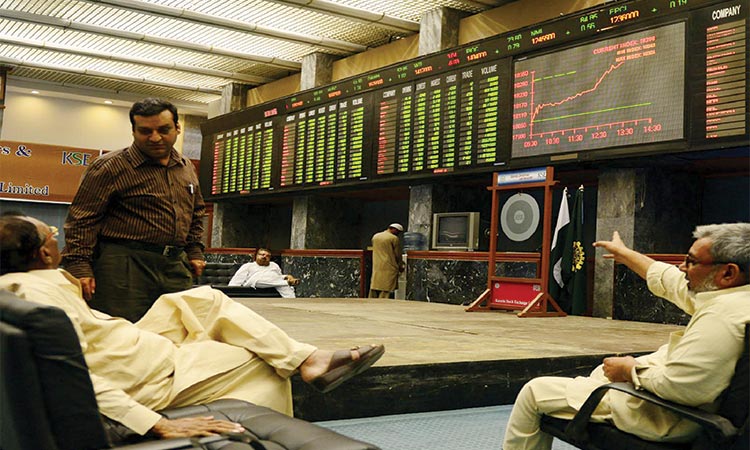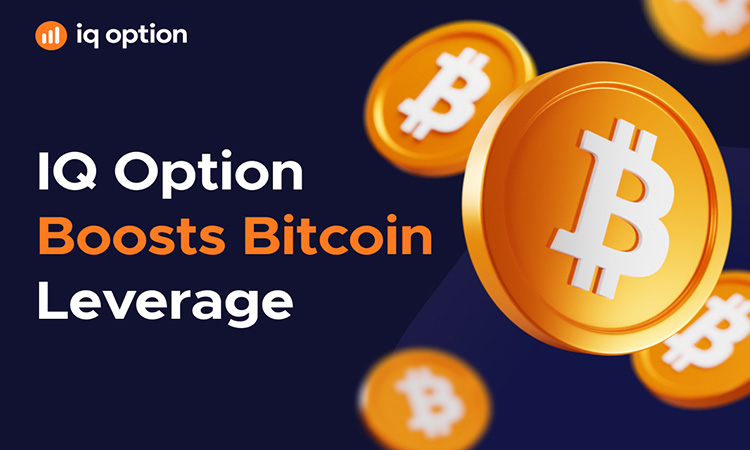British inflation slows sharply in June, offering some relief to BoE
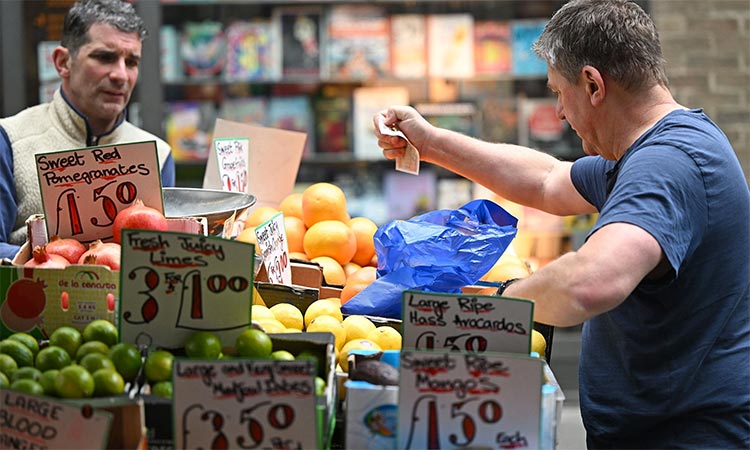
A man pays for fruits at a stall on Portobello Road, London, Britain. Reuters
Sterling weakened against the US dollar and the euro as the Office for National Statistics said the consumer price inflation growth rate was its lowest since March 2022 but stayed above the pace of price growth in other big, rich economies.
Economists polled by Reuters had forecast the CPI rate in the 12 months to June would drop to 8.2 per cent from May’s 8.7 per cent, moving further away from October’s 41-year high of 11.1 per cent but still far above the BoE’s 2 per cent target.
The BoE said in May it expected June inflation would fall to 7.9 per cent.
“Overall, the UK will probably still have higher rates of inflation than elsewhere for a while yet, but at least the UK is now following the global trend,” Paul Dales, chief UK economist at Capital Economics, said.
Investors reeled in bets for more interest rate hikes from the BoE. Markets now show a 25-basis point rise next month is likelier than a 50-basis point increase which had been priced in on Tuesday. Bank Rate peaking at 6 per cent is no longer fully priced, which had been the case on Tuesday.
Core inflation - which excludes food, energy, alcohol and tobacco prices and which the BoE uses to gauge underlying price pressures - also dropped by more than expected, coming in at 6.9 per cent from May’s 7.1 per cent, its joint highest in more than 30 years.
Economists polled by Reuters had expected the core measure of price growth to hold at 7.1 per cent. Food price and non-alcoholic drinks price inflation slowed to 17.3 per cent - still a major strain on the finances of many households - from 18.3 per cent in May.
The BoE is expected to raise interest rates for a 14th time in a row on Aug.3, having already increased its base rate to 5 per cent in May from 0.1 per cent in December 2021.
Prime Minister Rishi Sunak earlier this year promised to halve inflation by the end of 2023 before a national election expected in 2024, a target that finance minister Jeremy Hunt has described as challenging.
“Inflation is falling and stands at its lowest level since last March; but we aren’t complacent,” Hunt said in a statement after Wednesday’s data.
The opposition Labour Party, which is riding high in opinion polls, has accused Sunak’s Conservative Party of presiding over a “mortgage catastrophe” as home-owners see their borrowing costs jump.
Services prices, also monitored closely by the BoE, rose by 7.2 per cent in annual terms, slowing from 7.4 per cent in the 12 months to May. There were signs of a weakening of inflation pressure as factory gate prices rose by just 0.1% in the 12 months to June, the weakest reading since December 2020.
Manufacturers’ input prices fell by 2.7 per cent, the biggest fall in almost three years. The Reuters poll of economists had pointed to an increase of 0.5 per cent in output prices and a fall of 1.6 per cent in input prices.
Inflation has fallen more slowly in Britain than in other countries, partly because of the way energy subsidies are repriced every six months.
But the BoE has expressed concern that strong wage growth may keep price growth higher for longer than its forecast for inflation to fall to just over 5 per cent in late 2023 before dipping below its 2 per cent target only in early 2025.
Sterling slid on Wednesday after lower-than-expected British inflation data suggested the Bank of England might not have to raise rates quite as high as expected, while the latest dovish comments from the Bank of Japan caused the yen to soften.
The pound dropped as much as 0.8 per cent against the dollar to $1.2931, and also weakened versus the euro after figures showed British inflation fell more than expected in June and was at its slowest in more than a year at 7.9 per cent.
That was the British currency’s lowest in a week against the dollar, as it continued to roll off a 15-month high of $1.3144 hit Thursday.
“Good news at last for UK inflation. Below forecast headline and core,” said Kenneth Broux, head of corporate research FX and rates, at Societe Generale.
“Profit taking in sterling as a result should not be a surprise as we expect Gilt yields to come down vs US Treasuries and Bunds. The pound was overbought after the run-up in recent weeks.”
It was all about central banks in Asia Pacific as well, and the dollar climbed to a one-week high on the Japanese yen and was last up 0.4 per cent at 139.6.
Bank of Japan Governor Kazuo Ueda said on Tuesday there was still some distance to sustainably achieving the central bank’s 2 per cent inflation target, signalling his resolve to maintain ultra-loose monetary policy for the time being, in contrast to the hawkishness at other major central banks.
